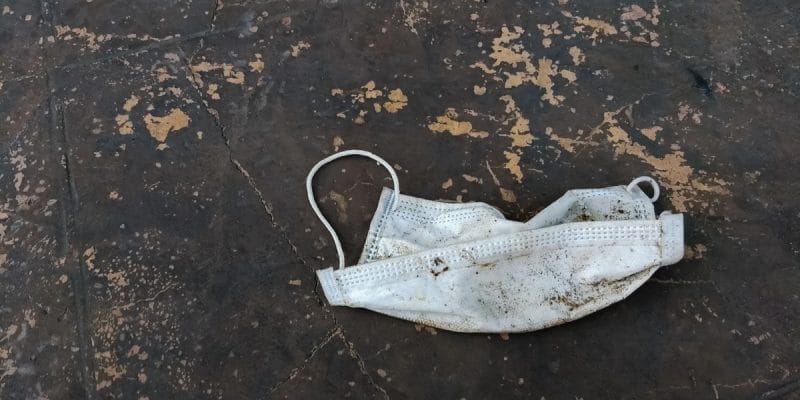The uncontrolled disposal of protective masks against Covid-19 poses a danger not only to human health, but also to the environment. In Morocco, where almost 1 million of these masks are used daily, the government has recently launched a campaign to raise awareness about the safe disposal of these means of protection against the coronavirus.
Since April 7, 2020 in Morocco, the wearing of protective masks against Covid-19 has become mandatory for all citizens exceptionally authorized to travel outside their homes. This action to combat the communal spread of coronavirus disease has led to the massive use of bib-type masks, nearly one million per day, the disposal of which is not always safe. After use, these potentially infected masks are very often discarded on pavements and other public places.
Faced with the health and environmental danger posed by used masks, the Moroccan Ministry of Energy, Mines and the Environment announced on April 24, 2020, a campaign to raise awareness among citizens about the safe disposal of used masks, in particular by pledging not to throw them on streets and public spaces, by disinfecting them and cutting them up before putting them in garbage bags.
The media and civil society will be involved by
According to the Department of Environment, this campaign includes the dissemination of awareness programmes on public and private television channels, radio stations, websites and social networks. Awareness raising posters on this issue will also be produced and disseminated in partnership with private sector actors and civil society.
This operation is part of the programme to combat the spread of Covid-19 in Morocco. A programme for which the Department of the Environment has also strengthened measures for the management of household waste. The objective is to reduce the risks of contamination linked to waste management, in particular by disinfecting containers and public spaces.
Likewise, local authorities and companies specializing in household waste management have also been called upon to make cleaners aware of the risks associated with waste and to provide them with adequate tools and means of protection.
Boris Ngounou







